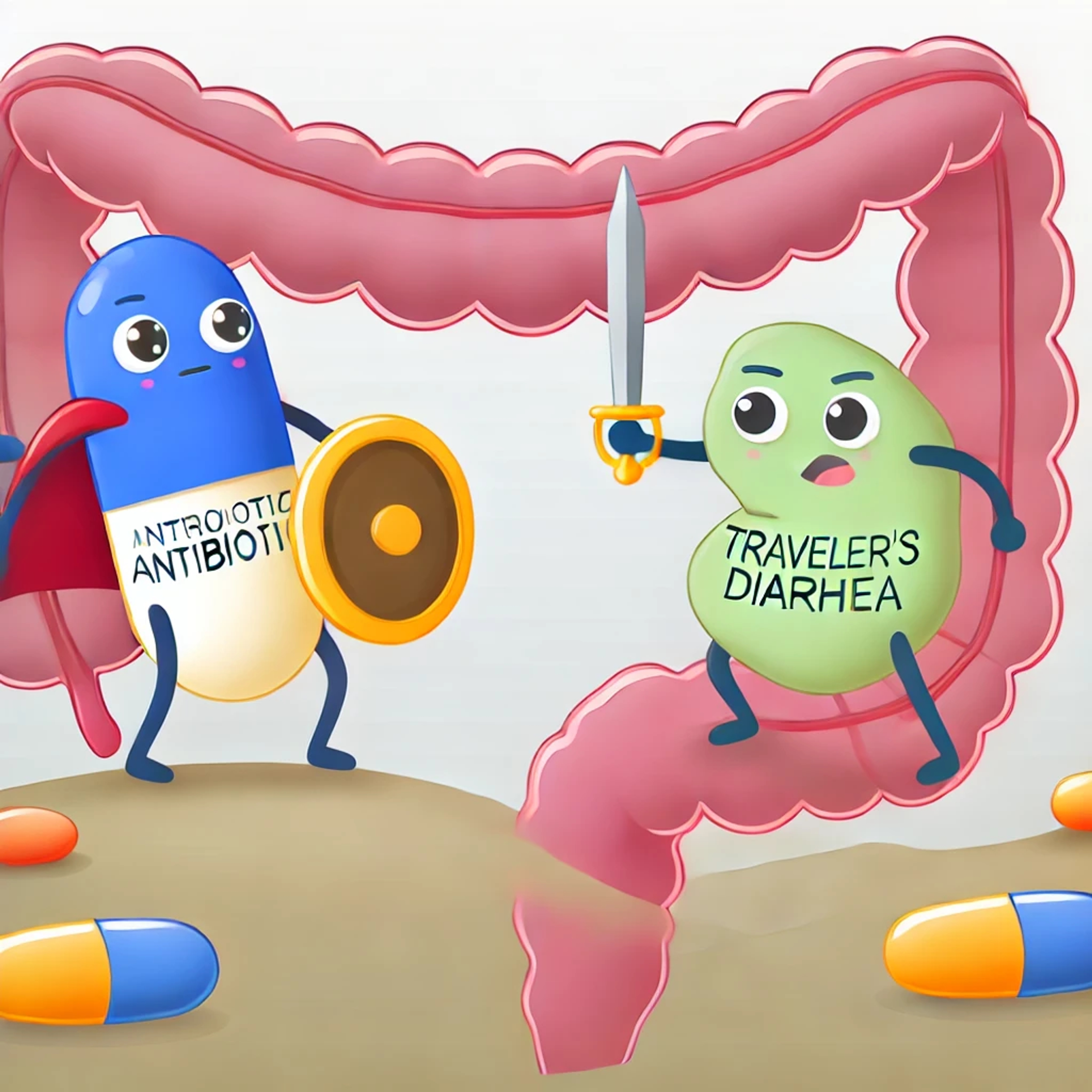8/11/2024
Understanding Traveler’s Diarrhea: Prevention, Treatment, and Post-Infectious Care

As an infectious disease and gastroenterology expert, I often encounter traveler’s diarrhea (TD) in patients venturing abroad. This condition affects millions of international travelers annually and can disrupt even the best-planned trips. This blog post will explore the common sources of infection, preventive measures, treatment options, and management of post-infectious diarrhea, with a focus on specific generic medications.
Common Sources of Infection
Traveler's diarrhea is primarily caused by ingesting contaminated food or water. The most common causative agents include:
Bacteria: Escherichia coli (particularly enterotoxigenic E. coli, ETEC), Campylobacter jejuni, Shigella species, and Salmonella species.
Viruses: Norovirus and rotavirus, especially in areas with poor sanitation.
Parasites: Protozoa such as Giardia lamblia, Entamoeba histolytica, and Cryptosporidium (DuPont, 2009).
Preventive Measures
Preventing traveler’s diarrhea involves vigilant food and water safety practices and, in some cases, prophylactic medications.
Food and Water Safety: Travelers should avoid tap water, ice made from tap water, and raw or undercooked foods. It's best to consume bottled or boiled water, eat foods that are thoroughly cooked and served hot, and avoid street food unless it is known to be safe.
Prophylactic Medications:
- Bismuth Subsalicylate: Over-the-counter (OTC) medications like Pepto-Bismol (generic: bismuth subsalicylate) can reduce the risk of TD. The recommended dose is 524 mg four times daily. Side effects include black stools and, rarely, salicylate toxicity.
- Antibiotics: In high-risk situations or for individuals with underlying health conditions, healthcare providers might prescribe antibiotics like ciprofloxacin (Cipro) or azithromycin (Zithromax) as a prophylactic measure. However, widespread use of antibiotics is discouraged due to the risk of antibiotic resistance (Riddle et al., 2017).
Treatment of Traveler's Diarrhea
If preventive measures fail and TD occurs, several treatment options are available:
Rehydration: The primary treatment for TD is rehydration. Oral rehydration solutions (ORS) containing electrolytes are highly recommended, especially for severe cases involving significant fluid loss.
Medications:
- Antimotility Agents: Loperamide (Imodium) can reduce the frequency of diarrhea by slowing intestinal motility. It should not be used if the patient has a high fever or blood in the stool, indicating invasive infection.
- Antibiotics: If symptoms are severe, antibiotics such as ciprofloxacin (Cipro), azithromycin (Zithromax), or rifaximin (Xifaxan) can be used to treat bacterial infections. The choice of antibiotic depends on the likely pathogen and local resistance patterns (Freedman et al., 2016).
Post-Infectious Diarrhea
Post-infectious diarrhea (PID) can occur after an episode of TD, characterized by prolonged gastrointestinal symptoms even after the initial infection has resolved. Symptoms may include persistent diarrhea, abdominal pain, bloating, and food intolerances.
Treatment Options for Post-Infectious Diarrhea
Dietary Adjustments: Patients should avoid foods that can aggravate symptoms, such as lactose-containing products, caffeine, and high-fat foods. A low FODMAP diet, which reduces fermentable carbohydrates, can be beneficial.
Probiotics: Probiotics such as Lactobacillus rhamnosus GG and Saccharomyces boulardii may help restore gut flora balance and improve symptoms.
Medications:
- Antidiarrheal Agents: Loperamide (Imodium) can be used to manage symptoms, but should be used cautiously.
- Antispasmodics: Medications like hyoscine (Buscopan) can relieve abdominal cramps.
- Bile Acid Sequestrants: Cholestyramine (Questran) may be useful if bile acid malabsorption is suspected (DuPont, 2014).
Conclusion
Traveler's diarrhea is a common but manageable condition. Prevention through safe food and water practices and prophylactic medications can reduce risk. If infection occurs, rehydration and appropriate medications are key to treatment. For those experiencing post-infectious diarrhea, dietary adjustments, probiotics, and targeted medications can provide relief and improve quality of life. As always, travelers should consult healthcare providers for personalized advice and treatment plans.
